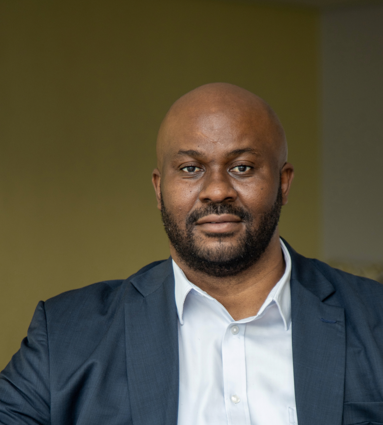Bonga

Bonga Ntuli matriculated shortly after the first democratic elections in 1994. He was offered an opportunity to study for a professional degree in engineering – a first for many black South Africans.
“I wanted to make a difference to the quality of life of people living in rural communities,” he says. “I chose water engineering so that I could work on rural schemes and give people access to water, which was sorely lacking.”
He says many things attracted him to Royal HaskoningDHV, including the opportunity to work on large water projects that could have a significant societal impact. Its CSI initiatives also appealed to him.
“They were doing initiatives like going into schools to teach children about engineering; they were offering training… I remember working on one project where we got the Department of Home Affairs on board to issue identity documents to the community, which meant that many pensioners could access their grants for the first time. It is truly a company whose values align with my own.” Bonga has been with Royal HaskoningDHV for an impressive 15 years, in roles as varied as project managing engineer, director of various business units, and board member. Today, he is Strategy Director for Southern Africa.
“Engineers need to be storytellers, too. We need to be able to express what it is we do, and how that benefits society.”
Bonga Ntuli
"I like to turn businesses around. I like to know that what we’re doing today will have an impact for the next ten, 20, 30 years to come,” says Bonga. He recalls working on the award-winning Ozwathini Water Supply Scheme, which provided 30,860 people with access to clean water and created skills development and employment opportunities for community members. “An entire community was uplifted thanks to a single project,” says Bonga.
Bonga believes that success is about enabling other people to pay it forward. “Training someone to uplift themselves, who then, in turn, trains another to do the same – that’s real progress. Real success.”
Bonga didn’t intend to be a leader. “It wasn’t something I actively pursued. Every time I was advanced within the company, I felt like it was because they saw my potential and the value I could add to the business. That’s when I knew this was the place for me; a place where I could be my true self. There were real opportunities and true exposure. And everyone was treated as equals.” That’s how you leave a legacy, he says.